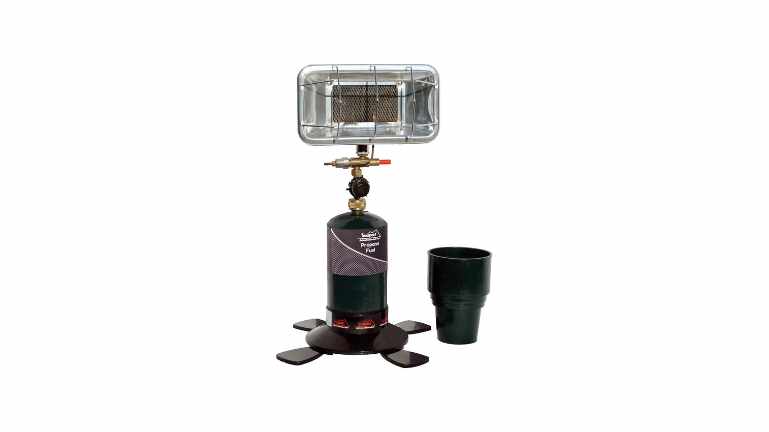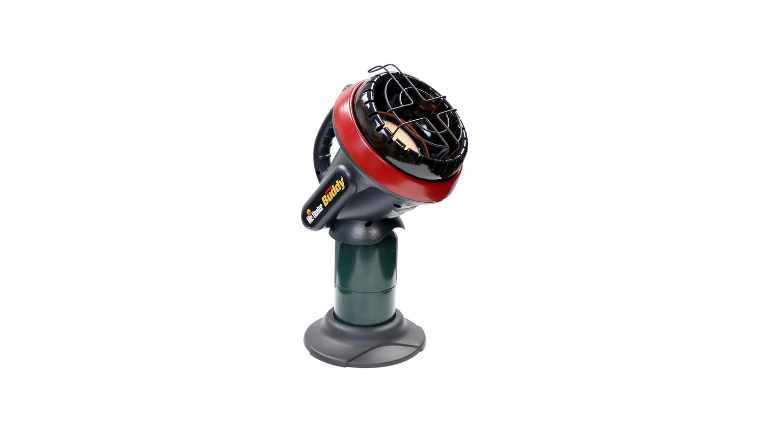As someone who loves playing golf year-round, I know the chill of a brisk winter morning can take the fun right out of a good game. That’s where golf cart heaters come in—they’re not just a luxury; they’re a game-changer. Whether you’re playing a quick nine or spending hours perfecting your swing, staying warm is key to enjoying the experience. In this guide, I’ll break down why golf cart heaters are worth considering, explore the different types available, and help you pick the best option for your needs. Trust me, once you’ve tried one, you won’t want to play without it.
Why Use a Golf Cart Heater?
I remember my first winter game without a heater—my fingers were so cold I could barely grip the club. A golf cart heater changes everything. It doesn’t just warm your hands; it makes the entire round more comfortable, letting you focus on the game instead of fighting the elements.
Beyond comfort, a heater can keep your companions happy, too. Golf is as much about camaraderie as it is about skill, and no one enjoys shivering through a round. Plus, a warm cart can mean better performance since you’re not distracted by the cold.
Heaters are versatile, too. They’re not limited to golf; I’ve seen people use them for camping or outdoor events. So, whether you’re chasing birdies or enjoying the outdoors, a golf cart heater is an investment in both your comfort and enjoyment.
Types of Golf Cart Heaters
Golf cart heaters aren’t one-size-fits-all. Each type has its own perks and quirks, so understanding the differences can save you time and money. Let me share what I’ve learned.
Propane Heaters
These are the workhorses of golf cart heaters. They’re fueled by small propane canisters, making them portable and powerful. One propane heater I used on a frosty morning kept the cart cozy for hours, even in biting wind. However, they do require careful handling—propane heaters must be used in a well-ventilated area to avoid any safety risks.
Pros: Reliable heat, portable, and long-lasting.
Cons: Can be bulky, and there’s always the safety factor with open flames.
Electric Heaters
Electric heaters are sleek and easy to use. They typically plug into your cart’s power supply, which means no extra fuel to carry. I love how straightforward they are—turn it on, and you’re good to go. However, the downside is that they can drain your cart’s battery quickly if you’re not careful.
Pros: Simple to use, no extra fuel required, safe.
Cons: Limited by battery life, may not be as powerful as propane models.
Portable vs. Installed Heaters
Portable heaters are perfect if you like flexibility. I’ve used one to warm my cart and then taken it with me to a tailgate party. Installed heaters, on the other hand, are fixed to the cart, offering seamless integration and less hassle—but they’re a bigger upfront investment.
Portable Pros: Versatile, easy to store.
Portable Cons: Can tip over if not secured.
Installed Pros: Permanent, hassle-free.
Installed Cons: Costlier, less flexible.
Key Features to Look for in a Golf Cart Heater
Choosing the right golf cart heater is all about balancing your needs with the features that matter most. Here’s what to keep in mind before making your purchase.
Heating Capacity and Efficiency
The first thing to consider is how much heat the unit can produce. Heating capacity is typically measured in BTUs (British Thermal Units)—the higher the number, the more heat it generates. For golf carts, a heater with a range of 2,000 to 4,000 BTUs is usually sufficient. However, efficiency matters too. A propane heater with strong heat output but poor fuel efficiency might leave you refilling canisters frequently, while an electric model with low power consumption can stretch your battery life.
Safety Features
Safety should always be a top priority, especially if you’re using a propane heater. Look for models with features like an auto shutoff in case the heater tips over or the flame goes out. Oxygen depletion sensors are another must-have for enclosed spaces, as they detect low oxygen levels and automatically shut off the heater to prevent hazards. Electric heaters are generally safer but still benefit from overheating protection, which ensures they don’t get too hot and damage your cart or equipment.
Portability and Size Compatibility
Golf cart interiors aren’t known for their spaciousness, so a compact heater is essential. Portable models are ideal if you need something you can easily move in and out of the cart. I’ve found that cup-holder-style heaters are particularly convenient—they slot right in and stay secure while driving. For larger carts, a slightly bigger heater might work, but always check the dimensions to ensure a proper fit.
Power Source
Your heater’s power source can make or break your experience. Propane heaters are perfect for long rounds, as they don’t rely on your cart’s battery, but you’ll need to carry spare canisters. On the other hand, electric heaters draw power from your cart’s battery or a portable power bank. While they’re cleaner and easier to operate, they may not last as long on a single charge. I recommend assessing how often and for how long you’ll use the heater to choose the best option for your lifestyle.
My Top 3 Suggestions
Mr. Heater 4,000 BTU MH4GC Golf Cart Heater

As any avid golfer knows, staying warm during chilly morning rounds can significantly impact your performance and enjoyment. I’ve had the chance to use the Mr. Heater 4,000 BTU MH4GC on several occasions, and I’ve been thoroughly impressed by its performance. This propane-powered heater provides a solid 4,000 BTU, offering reliable warmth for up to 5.5 hours—plenty for a full round or even a longer day on the course. It works exceptionally well in gusty conditions, thanks to its wind-resistant burner, eliminating the frustration of battling the elements just to stay warm.
Performance:
The 4,000 BTU output is immediately noticeable. Whether you’re seated in a golf cart or standing still, it offers a consistent level of heat that makes a cold morning round far more comfortable. I’ve used it in cold, windy weather, and it keeps the chill at bay with no issues, even in gusty conditions.
Safety Features:
What sets this heater apart are its safety features, especially the oxygen depletion sensor (ODS) and the tip-over safety switch. On uneven terrain, such as bumpy golf course paths, these safety mechanisms prevent the heater from operating in unsafe conditions. I’ll admit, I didn’t fully appreciate how critical this feature is until I encountered an unexpected tip-over mid-round. Knowing that it will shut off automatically in unsafe situations gives me peace of mind.
Ease of Use:
The Piezo igniter is incredibly easy to use—no matches required—and it fires up within seconds. The included cup holder adapter is a thoughtful touch, ensuring the heater fits securely in my golf cart. Plus, the ergonomic handle makes it easy to carry around when needed.
Drawbacks:
At 6 pounds, it’s slightly heavier than some other models, but this is a minor tradeoff for the powerful performance and safety features it delivers. Additionally, you’ll need to purchase propane separately, which is something to keep in mind.Verdict:
If staying warm on the course is a priority, the Mr. Heater 4,000 BTU MH4GC is an excellent choice. Although it’s an investment, the reliable heat, safety features, and overall performance make it worth every penny.
Texsport Sportsmate Propane Heater

For those seeking a budget-friendly option, I decided to give the Texsport Sportsmate Propane Heater a try. While it’s more lightweight than the Mr. Heater MH4GC, it doesn’t quite provide the same level of heat. However, it’s a solid option for those looking for something compact and portable.
Performance:
With a 3,000 BTU output, the Texsport Sportsmate is sufficient for shorter rounds or milder weather conditions. It provides enough warmth to take the edge off on a chilly morning, but it doesn’t have the power to warm an entire golf cart in colder, windier conditions. It’s best suited for quick bursts of warmth rather than extended use.
Portability:
One area where the Texsport Sportsmate excels is portability. Weighing in at only 2 pounds, it’s incredibly easy to carry around and transport. I’ve also taken it on camping trips, where it performed admirably in confined spaces. The molded cup holder and wide paddlefoot base are useful features that provide stability, even on uneven surfaces.
Build Quality:
The stainless steel burner is durable, and the pressure regulator provides adjustable heat output, but it lacks advanced safety features like an ODS or tip-over protection, which can be a concern when using it on rougher terrain.
Drawbacks:
Because it lacks some of the advanced safety mechanisms found in higher-end models, I wouldn’t recommend it for rugged or unpredictable environments. However, it’s perfectly adequate for calm, sunny days or short rounds on less demanding courses.
Verdict:
The Texsport Sportsmate is a great value for golfers who don’t need intense heat and prioritize portability. It’s perfect for shorter rounds in mild conditions, but for those facing extreme cold or windy weather, I’d recommend a more powerful option.
Mr. Heater Buddy

The Mr. Heater Buddy is a compact, versatile heater that I’ve used on both camping trips and in a golf cart. While it’s efficient for personal warmth in smaller spaces, it’s not the ideal choice for use in a golf cart, despite its many advantages.
Performance:
With a 3,800 BTU output, the Mr. Heater Buddy excels in smaller, enclosed spaces, such as tents or garages. When used in a golf cart, it does keep you warm, but the effectiveness diminishes in an open, moving environment. For smaller spaces, it’s fantastic, but for golf carts, the warmth doesn’t quite reach the same level.
Safety:
Safety is a highlight of the Mr. Heater Buddy. It features both a low-oxygen shut-off system and tip-over protection, making it a reliable choice for stationary spaces. These features ensure that the heater automatically turns off if the oxygen levels drop too low or if it tips over, offering reassurance during use in confined spaces.
Portability:
The Buddy is incredibly lightweight, and its compact size makes it easy to transport. Its quiet operation is another major benefit, especially when you want to maintain a peaceful atmosphere.
Drawbacks:
The most significant issue is that this model is not designed for use in moving vehicles like golf carts. The manufacturer specifically warns against using it in such settings, as it could lead to dangerous safety issues, making it unsuitable for the course.
Verdict:
While the Mr. Heater Buddy is fantastic for stationary spaces such as tents or garages, it’s not suitable for use in golf carts. It’s an ideal solution for camping or indoor use, but golfers should look elsewhere for a cart-friendly option.
How to Choose the Best Golf Cart Heater for Your Needs
Selecting the ideal golf cart heater requires careful thought about your specific needs and circumstances. Here’s how you can make the best choice:
Climate and Usage Habits
If you’re in an area with harsh winters, prioritize heaters with higher BTU ratings or advanced features like adjustable heat levels. For milder climates, a compact electric heater might be sufficient. Think about how often you play—occasional golfers may prefer a portable heater, while frequent players might benefit from a more durable, installed option.
Golf Cart Compatibility
Your cart’s layout and power source will heavily influence your choice. Electric heaters require a compatible power outlet or battery, so check your cart’s specifications. For propane heaters, ensure you have enough space to safely store the propane canister and position the heater securely. Cup-holder-style heaters are a great solution for most carts, but always double-check dimensions.
Budget Considerations
Heaters range widely in price. Propane heaters tend to have a lower upfront cost but require ongoing expenses for fuel. Electric heaters might be more expensive initially, especially installed ones, but they’re often more cost-efficient over time. Set a budget that balances cost with long-term convenience and safety.
By evaluating these factors, you’ll find a golf cart heater that fits your needs and keeps you comfortable on the course.
Maintenance and Safety Tips
Proper maintenance and safety practices can extend your heater’s life and ensure worry-free use. Here are my go-to tips:
Maintenance Tips
- Propane Heaters: Check the connections and hoses for leaks or wear before each use. Clean the burner area regularly to remove dust and debris that can block the flame. Always store propane canisters in a cool, ventilated area when not in use.
- Electric Heaters: Inspect the cords and connections for fraying or damage. Dust the heater’s vents periodically to prevent clogging, and store the unit in a dry location to avoid moisture damage.
Safety Tips
- For Propane Heaters: Always use these in well-ventilated spaces to avoid carbon monoxide buildup. Position the heater securely to prevent tipping, and never leave it unattended while it’s running.
- For Electric Heaters: Avoid overloading your cart’s battery—turn off the heater when not in use to conserve power. Use models with built-in safety features like overheating protection or automatic shutoff.
Following these tips ensures your heater performs reliably and safely, letting you focus on enjoying your game.
Final Thought
Golf cart heaters are more than a luxury—they’re a smart way to enhance your golfing experience during colder months. From propane to electric models, the variety of options in 2025 means there’s something for every golfer’s needs.
When choosing the right heater, remember to consider your climate, cart compatibility, and budget. Focus on key features like heating capacity, safety, and portability to find the perfect fit. And don’t forget to maintain your heater and follow safety guidelines to ensure it serves you well for years to come.
Whether you’re braving winter mornings or extending your playing season into late fall, a golf cart heater is a worthwhile investment. So, take the leap, stay warm, and enjoy your time on the greens like never before. Your best round could be just a cozy cart ride away!
FAQs
Are propane heaters safe for golf carts?
Yes, as long as they’re used correctly. Always ensure proper ventilation and keep the heater upright to prevent tipping. Many propane heaters come with safety features like auto shutoff and oxygen depletion sensors, which add extra layers of protection.
How long does an electric heater last?
The runtime depends on your cart’s battery capacity and the heater’s power consumption. On average, an electric heater can run for 2–5 hours on a fully charged battery. Some models are compatible with portable power banks for extended use.
Can a car heater be adapted for a golf cart?
Technically, it’s possible, but it’s not recommended. Car heaters are designed for larger, enclosed spaces and require more power than a golf cart’s battery can typically handle. Instead, opt for heaters specifically designed for golf carts—they’re safer and more efficient.

Mark is a seasoned Outdoor Equipment and Heating Appliances specialist. With a passion for adventure and a keen understanding of heating solutions, he brings expertise to the world of outdoor enthusiasts. Mark’s insights, gained through years of experience, make him a go-to resource for those seeking reliable guidance in navigating the realm of outdoor gear and heating technologies.
